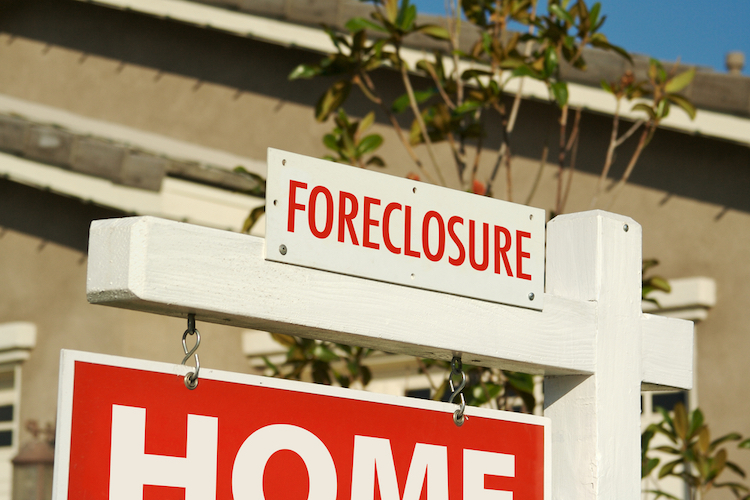Here’s What You Need To Know Before Buying A Foreclosed Home
The process of purchasing a home can feel both thrilling and terrifying. Financing is an essential factor to consider, but so is getting the best bang for your buck. No one wants to feel dismayed that they overspent, especially for a big-ticket item like housing. Foreclosed home listings are an option you should consider in pursuit of affordable housing options.
Common misconceptions buyers contemplating this market hold are that the homes aren’t readily available or are too rundown. They also worry that the entire process will be too confusing. But clarification and understanding can alleviate these false impressions. Homebuyers don’t have to miss out on tapping this market.

Foreclosed Home Defined
Homeowners sometimes fail to meet the terms of their mortgage agreement by defaulting on payments (or failing to pay property taxes). When this happens, the bank or government lender can repossess the property.
The result of this repossession process is called foreclosure. Legally seized and foreclosed properties then go on the market. This way, lenders can try to recover their financial losses from the defaulted loans.
Typically, these lenders do not want to incur additional costs to repair and refurbish the properties. Also, they are specialists in lending, not real estate sales. Therefore, they attempt to sell the properties swiftly at reduced prices. These lower prices often attract house-flippers and investors. But conventional homebuyers can also take advantage of the bargains. And it’s not as complicated or daunting as you might think.
Each of the core foreclosed home types all has unique characteristics and ways they operate.
Preforeclosure
The first step in the foreclosure process is the preforeclosure. The lender has informed the current owners that they are in default of their mortgage. Homeowners who can’t catch up on the missed payments and penalty fees may decide at this point that their best option is to sell their home. This way, they can pay off their debt before repossession begins.
A homeowner who sells at this stage has a better chance of salvaging their credit to purchase another home in the future. And lenders usually prefer this option over foreclosure, as well, to avoid incurring additional expenses. The sale of the house pays towards the outstanding debt.

Short Sale
Homeowners sometimes sell their homes for less than they owe. This underselling is called a short sale. Sellers often do this as a desperate, last-ditch attempt to avoid a looming foreclosure deadline. These short sales may result in great deals, but there are some possible downsides.
Firstly, the lender’s permission is required, as they assume the loss. This permission may be more forthcoming than expected, though. The lender has to take into consideration the amount of shortfall. They must also consider the expense of foreclosing and selling the house themselves. This decision process can take months. Secondly, the seller may take the decision-making time to pull themselves out of debt. If they can pay everything off, they could cancel the sale.
But if everything falls into place, this can result in a great price and financing in the same fashion as any other home purchase. Paying fully in cash is not required.

Auction
One of the riskier ways of buying a foreclosed home is at auction.
Auctions happen after the preforeclosure period is exhausted and repossession of the property has taken place. Since payment of the outstanding debt isn’t forthcoming, the lender intends to unload the property swiftly.
Here is when a neutral third party begins the trustee sale. The property goes up for auction, sold to the highest bidder. The lender receives the balance of the outstanding mortgage and the straight costs of the foreclosure and auction sale. The balance, if applicable, is paid to the now-former homeowner, barring any other secondary liens on the home. If no bidders are interested, then the property belongs to the lender to sell outright.
For the prospective buyer of these auctioned homes, risks come with not being fully informed. Does the house have liens for which you’ll become responsible? Can you view the home in advance to see the state of repairs needed? Advance research can avoid headaches.
Also, auctions deal in cash-only sales. So if you need to finance, this is not going to be the avenue to take. If all this works out, make sure the property hasn’t been pulled off sale on the day of the auction. That can happen if the lender and homeowner reach a financial agreement at the last minute. Buyers may determine acceptable risks with the right price.

Real Estate Owned
If the property hasn’t sold through preforeclosure or auction, the bank tried to sell it through an agent. Discounts are still possible, especially if the property has been sitting unsold for a time.
These properties allow financing in the same fashion as any other typical sale. However, mortgage approval may only be forthcoming if the property is in good shape. And since foreclosed properties sell “as is,” the responsibility for repairs falls on the buyer. Be sure to consider repair costs when making a purchase bid.
Purchase Considerations
Make sure you have enough funds allocated for any needed repairs. Check to see if your buying timeline has enough cushion for potential pitfalls. Secure your financing easier by getting your credit and downpayment in line. Or, if it’s a cash sale, be sure to have enough to cover the costs.
Also, consider a buyer’s agent to help you negotiate and give you advice. The seller pays them a commission, and as experts in the field, they may have insider knowledge that can help. Preparation is the way to avoid headaches and regrets when buying a foreclosed home.
